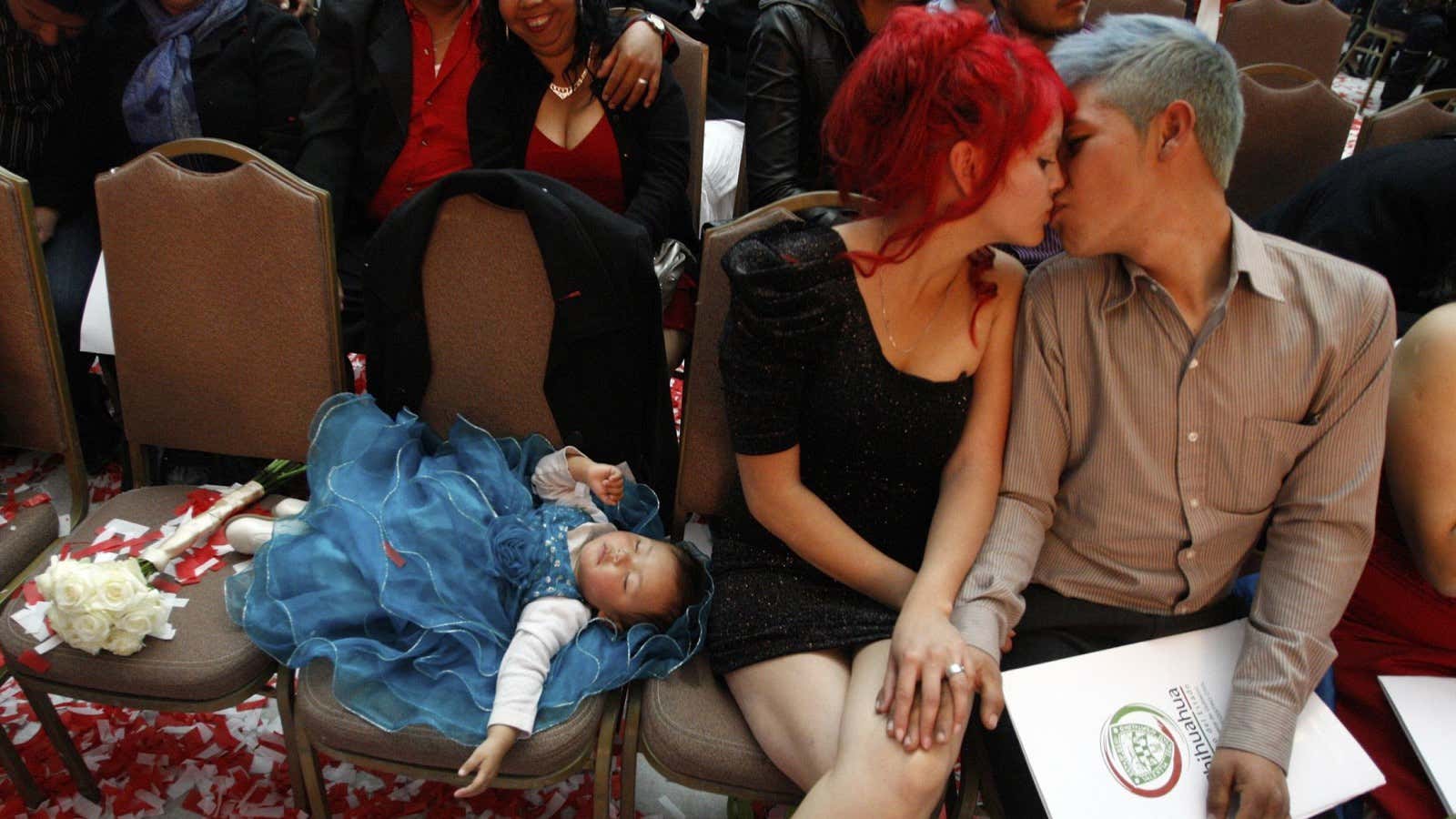There’s been talk this week of husbands taking the names of their wives, after one man, Marco Perego, adopted the name of his more famous wife, Zoe Saldana.
I’m all for Mr. Saldana’s choice, which seems obvious to the point where the big Hollywood waves it’s made are annoying. More interesting than one lone action is the fact that, in an era when most women and men I know don’t even question the fact that they are feminists, this is still a debate at all. And yet, there isn’t a simple solution, a fact I’m only realizing as I approach my own marriage.
We all need a better strategy—and in my case, we need it before July 4.
Identity
As a feminist, I didn’t think I would get married. My parents weren’t married and my mother, Valerie Irving, never changed her name—a choice that struck and still strikes me both as rational and a badge of equality.
If a prospective partner were to find marriage important, I thought, it was clear to me my name would stay the same. It’s an unusual and not particularly beautiful name; perhaps that’s part of why it feels like a big part of my identity. More than that, it’s a principle: generations of women’s names have been swallowed by their husbands’ families, leaving no trace: just another symbol of patriarchy that we continue blithely and needlessly to perpetuate.
As friends began to marry, I was surprised when the women took their husbands’ names. I expected none to. Most did.
Now, I find myself in love with a man to whom marriage is important, and for whom sharing a name is important, and who likes his own name to about the same degree I like mine.
Family
David’s contention is that in marrying, we’re starting a new family, and that our identities will necessarily change with that creation—we’re now both looking forward to that new entity coming into existence. He is more flexible than me, and would change his name if he liked mine more, he says. I, on principle, still can’t countenance taking his.
These are our options: double-barrel the names into the genuinely unwieldy Werber-Seddon; combine them into the silly-sounding Sedwerb, which we’ve been using as a joke for weeks but seems increasingly attractive; take a new and completely different name, as some have done, which is tricky professionally and doesn’t solve the problem of the loss of that part of ourselves which loves our own names.
Most people I know will have some of these thoughts when they marry. There is and should be nothing extraordinary in one partner choosing to take the other’s name, regardless of gender. But the Saldana reaction shows we’re not out of the patriarchy woods yet. After all, my name—which I hold so dear—is my father’s, and his father’s.
Our likely solution: keep our own names and, if we have more than one child, give the children each a different surname. Or a new surname, invented for the purpose. We’ve even discussed stealing a cool name from one of our friends, or from history—Lockheart and Plantagenet are our favorites.
Meanwhile, Breeds-Wonder is an auspicious anagram of our names. But not, I imagine, a genuine option.
